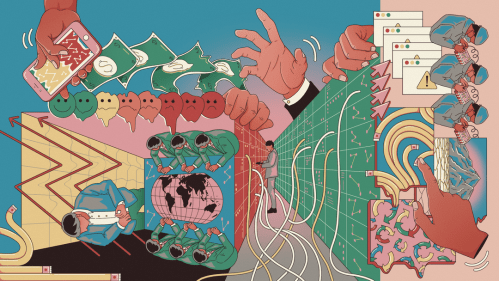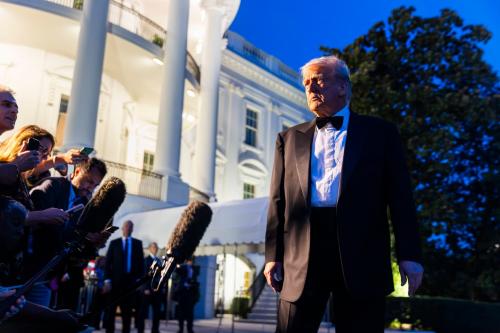The question will strike many as absurd. The man confessed, didn’t he? And the motive is obvious – he is competing for status with journalists risking their lives in the Mideast and wants to pass himself off as a similar journalistic hero. But the question is not absurd if by “lie” we mean “intentionally falsify, aiming to deceive.” The suggested motive and most other motives may be easily disposed of. In today’s world of “gotcha journalism” and the internet, where existing records are easily discovered and few records are erased, Williams could not expect an untruth as blatant and public as his to go undiscovered. He surely would have realized that the risk of discovery far outweighed any benefits the glow of heroism might bring.
But no motive is necessary to explain Williams’ statement. That he is human is enough. We have known for decades that memory does not work like a tape recorder or camera. Seldom is a flash bulb fired to capture a memory for all time. Most observations are not retained, and when they are, they seldom endure as originally recorded. Memory is malleable. Our memories are reshaped with each telling and as time passes. When the incontrovertibly innocent are convicted for serious crimes, mistaken eyewitness identifications are the most common cause. Yet the original accounts of these witnesses were not always inaccurate. When first questioned, a witness may give a vague description recalling only a few salient features, or the witness may describe a photo from a photo array as the one that “most nearly resembles the assailant.” But by the time of the trial, after having perhaps viewed the defendant’s photo several times or seen the defendant himself in a live line-up, what was once a “closest resemblance” becomes a confident identification. Even though excitement typically interferes with accurate observation, the excitement of seeing, or being victimized by, a crime becomes the reason why “I would never forget that face.” If the witness is reminded on cross-examination of the first, shaky identification, shakiness is likely to be denied or explained away. Jurors, impressed by the witness’s lack of bias, sincerity and complete confidence vote to convict, even though a witness’s confidence tells us little, if anything, about the witness’s likely accuracy.
Even stranger are cases where, responding to extreme pressure, people confess to crimes they didn’t commit. Most false confessors recognize the lies they are telling, but do so to escape the situation or because of benefits they believe are promised. (“We know you did it. We won’t send you home to your parents until you tell us why.”) But a minority later say that by the time they confessed, they had come to believe the falsehoods they adopted under coercion, and it was only later that they recognized their implanted memories as false and their stories untrue.
When less is at stake than conviction of a crime, it is easy to change people’s memories of an event. Ask viewers of a filmed auto accident how fast two cars were going when they “bumped into” each other, and estimated speeds are likely to be slow. Ask viewers of the same film how fast the cars were going when they “smashed into” each other, and estimated speeds will be far higher. More to the point, if a week later the viewers are asked whether they saw broken glass in the film, those in the “smashed” group, unlike those in the bumped group, will say they saw glass on the ground when there was none.
Williams’ falsehood is particularly interesting because we have a documented history of Williams’ descriptions of his helicopter venture over time. His original version described a trip in which he safely observed another helicopter under attack. But over the years, with each retelling, the trip became more harrowing for him. His next most recent version claims the helicopter he was in came under small arms fire, while the most recent version ups the ante by adding an RPB attack. A similar relationship exists between other adjacent prior recountings. With each retelling he had more cause to be concerned for his safety. I suppose it is possible that these escalating retellings were part of a Machiavellian plan to pave the way for acceptance of the version that made him look most heroic, but it is far more likely that we are seeing a rare, detailed portrait of how memory is transformed over time. This does not mean that Williams’ desire to for celebrity did not affect the direction and extremity of the transformed account, but it does suggest that we should acquit Williams of charges that he sought to deceive. We certainly lack proof beyond a reasonable doubt. The fact that we cannot trust Williams to accurately recall old events without self-aggrandizement good does not mean that we cannot trust him when he reports the news or his own contemporary observations.
An interesting side note to this story is that Rich Krell, who claimed to have piloted the copter carrying Williams, originally confirmed Williams’ account with respect to the small arms fire but not the rocket-propelled grenade, but he later withdrew his confirmation. Indeed, others have claimed that Krell was not the pilot during that trip. Did Krell intend to deceive? It is not likely. There was nothing in it for him. Most likely we are again seeing malleable memory at work. A photo of Williams and Krell together suggests that even if Krell did not then pilot Williams, he probably did on some other occasion, and as a copter pilot in Afghanistan he, no doubt, experienced more than once being under small arms fire. A common form of memory transformation is to place an experienced event in the wrong setting. (“I’ll never forget our anniversary dinner at Joe’s Joint.” “That was my birthday dinner, dear.”) Moreover, as with the car accident film, what others say can trigger false recall. Hearing Williams’ story may have led Krell to blend memories of piloting Williams and being under small arms fire, and to associate them with the event Williams was describing. Yet knowing only that the stories told by Krell and Williams were false, many would think that Krell must have been trying to cover for Williams.
Lurking behind the Williams story, almost as a dress rehearsal for a possible later brouhaha, is Hillary Clinton’s story of ducking sniper fire as she departed her plane in Bosnia. This story too is indisputably false, but the discrepancy between truth and reality does not mean Clinton was trying to deceive. Assistant Secretary of State Christopher Hill who was on the plane with her recounts in his book Outpost an extended security briefing before the plane landed describing the possibility that there would be sniper fire as they disembarked and what to do if this happened. Clinton, no doubt, closely attended to the briefer’s cautions and instructions, and these would hae made far more of an impression than the bland experience of the actual disembarkation. It is not surprising if years later still live memories of what she heard just prior to landing in Bosnia led Clinton to falsely associate actual sniper fire with her landing experience. As with jurors who cannot imagine that an eyewitness ever could forget an attacker’s face, it is hard to imagine that a person ever could forget whether she was fired on by snipers, but as with jurors who have convicted the innocent, our intuitions regarding what an honest person will remember have a good chance of being wrong.
Celebrities and politicians should not be given a pass when they state untruths. Rather the untruth should be called out. But this does not mean we should call out the person who spoke falsely as a liar. Newscasters and politicians are, like the rest of us, human. We all have false memories. This does not make us untrustworthy, or mean that most things we say should be viewed with skepticism. Now Williams will be off the air for six months, perhaps because he is a self-aggrandizing liar, but most likely because he is simply human.
The Brookings Institution is committed to quality, independence, and impact.
We are supported by a diverse array of funders. In line with our values and policies, each Brookings publication represents the sole views of its author(s).



Commentary
Did Brian Williams lie?
February 12, 2015